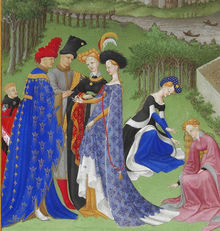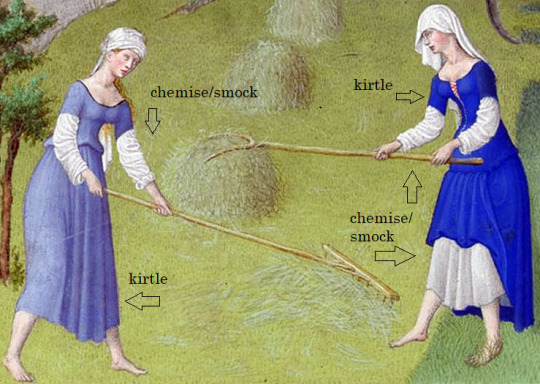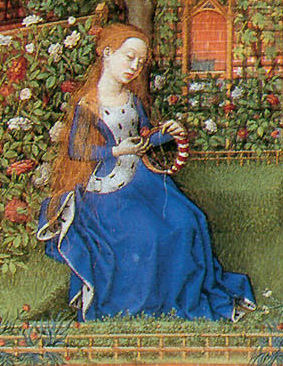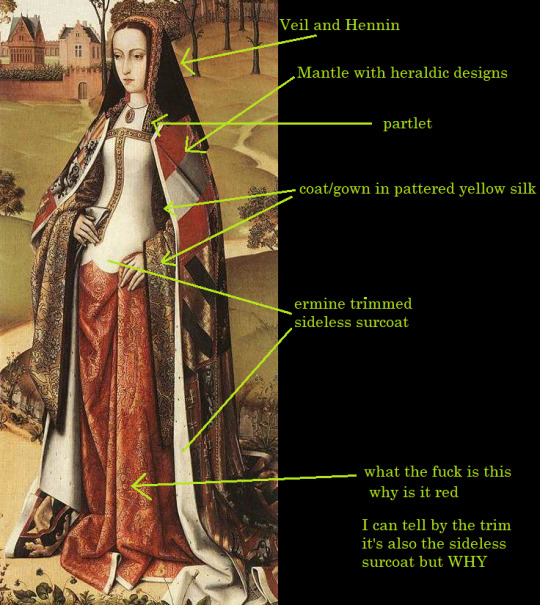Offering developmental and line editing, and tutoring in research skills.
Don't wanna be here? Send us removal request.
Text
THOU, THEE, THY, THINE. SAME THING RIGHT?
NO.
Although they seem very similar, Shakespeare would be in tears if he saw how most people mix them up. lets save William the misery and teach you when to correctly use thou, thy, and thine.
THOU
Thou = You (in subject form)
"Thou art killing me." "Art Thou crying?"
THEE
Thee = You (in object form)
"I want to kill thee." "My dog ate thee in my dream."
THY
Thy = Your (before a word that starts with a consonant)
"Thy mother." "Give me thy duck."
Thyself is used the same as any other thy+word combination like "thy mother" but without a space
"Take care of Thyself."
THINE
Thine = Your (before a word that starts with a vowel)
"Thine unibrow is evident." "Thou art on thine own."
Now Shakespeare can truly rest in peace.

Go follow me @leisureflame for more posts like this!
931 notes
·
View notes
Text
This is a dangerous sentiment for me to express, as an editor who spends most of my working life telling writers to knock it off with the 45-word sentences and the adverbs and tortured metaphors, but I do think we're living through a period of weird pragmatic puritanism in mainstream literary taste.
e.g. I keep seeing people talk about 'purple prose' when they actually mean 'the writer uses vivid and/or metaphorical descriptive language'. I've seen people who present themselves as educators offer some of the best genre writing in western canon as examples of 'purple prose' because it engages strategically in prose-poetry to evoke mood and I guess that's sheer decadence when you could instead say "it was dark and scary outside". But that's not what purple prose means. Purple means the construction of the prose itself gets in the way of conveying meaning. mid-00s horse RPers know what I'm talking about. Cerulean orbs flash'd fire as they turn'd 'pon rollforth land, yonder horizonways. <= if I had to read this when I was 12, you don't get to call Ray Bradbury's prose 'purple'.
I griped on here recently about the prepossession with fictional characters in fictional narratives behaving 'rationally' and 'realistically' as if the sole purpose of a made-up story is to convince you it could have happened. No wonder the epistolary form is having a tumblr renaissance. One million billion arguments and thought experiments about The Ones Who Walk Away From Omelas that almost all evade the point of the story: that you can't wriggle out of it. The narrator is telling you how it was, is and will be, and you must confront the dissonances it evokes and digest your discomfort. 'Realistic' begins on the author's terms, that's what gives them the power to reach into your brain and fiddle about until sparks happen. You kind of have to trust the process a little bit.
This ultra-orthodox attitude to writing shares a lot of common ground with the tight, tight commodification of art in online spaces. And I mean commodification in the truest sense - the reconstruction of the thing to maximise its capacity to interface with markets. Form and function are overwhelmingly privileged over cloudy ideas like meaning, intent and possibility, because you can apply a sliding value scale to the material aspects of a work. But you can't charge extra for 'more challenging conceptual response to the milieu' in a commission drive. So that shit becomes vestigial. It isn't valued, it isn't taught, so eventually it isn't sought out. At best it's mystified as part of a given writer/artist's 'talent', but either way it grows incumbent on the individual to care enough about that kind of skill to cultivate it.
And it's risky, because unmeasurables come with the possibility of rejection or failure. Drop in too many allegorical descriptions of the rose garden and someone will decide your prose is 'purple' and unserious. A lot of online audiences seem to be terrified of being considered pretentious in their tastes. That creates a real unwillingness to step out into discursive spaces where you 🫵 are expected to develop and explore a personal relationship with each element of a work. No guard rails, no right answers. Word of god is shit to us out here. But fear of getting that kind of analysis wrong makes people hove to work that slavishly explains itself on every page. And I'm left wondering, what's the point of art that leads every single participant to the same conclusion? See Spot run. Run, Spot, run. Down the rollforth land, yonder horizonways. I just want to read more weird stuff.
#I second this motion#life is so varied that attempts to express it must be varied too#and in a day where you have to wonder if any given book has come from AI#being 'voicey' is a good thing!#writing#editing
26K notes
·
View notes
Text
the most powerful writing tool is actually Brainstorming With The Girls
#you are not meant to do big things alone!#and writing is a big thing#it's so much more fun when you can share ideas with other people who get excited about them too
15K notes
·
View notes
Text
The Great Goodreads Diss List (Part 1)
Context: For many years now, I have been collecting funny lines from Goodreads reviews to share with my coworkers. (I do collection development, reader's advisory, and weeding at a public library, so I read a LOT of reviews)
Are some of these, perhaps, rather mean? Yes, but they are also very funny, and come from a place of honest frustration. In the tradition of Bargepole threads and lists everywhere, names and titles have been censored.
"First, I want to say that I understand how hard it is to write a book and how amazing it is when it is actually published. Congrats to the author for that accomplishment. That said--"
"Warning: This review will be lengthy due to pure hatred."
"I found myself feeling really, really annoyed with the world that this book is allowed to exist. We live in a universe where the passenger pigeon is extinct but this book goes along merrily being read by unsuspecting lovers of words and ideas and stories? It just seems like too much, you know?"
"Don't do it. Don't spring the cash for the hardcover. Instead, eat an entire bag of Twizzlers, spend some money you don't have at a high-end department store, look up on Facebook the shady college boyfriend that made you cry, research the current value of your home or 401K and then read all about how the big hedge fund managers are faring during the economic crisis. You'll feel about the same stomach pain if you waste your time reading this book."
"This wretched novel begins with the mugging of an old lady and it appears I may be in the process of repeating that loathsome crime as [author] was 78 when she wrote it. It is not nice to put the boot into such a poor defenseless old creature lying there with only a damehood, a Booker Prize and a few million quid. It’s a nasty job but somebody has to do it."
"I think this is the way dead people would write, if they could."
"I am considering setting up SPABB: Society for the Protection of Accurate Book Blurb. This blurb appears to have been written by someone from the publishers who met [the author] the night before, got very drunk, lost his notes and then constructed something in a fug of hangover the next morning."
"I congratulate [the author] on the early half of his book, which was thoroughly fun and made me laugh and think. I congratulate [the author] on the second half of his book, for finishing it. It reads like that was difficult."
"…a woman whose taste in contemporary literature has roughly the same batting average as a pitcher in the National League."
"The author is a pompous windbag."
"Recommends it for: No one. Recommended to me by: A friend who apparently wished to cause me great suffering."
"Makes me wonder: is it possible to obtain similes at a volume discount?"
"The repeated phrases made me want to mail a thesaurus to the author."
"I'm disappointed in myself for finishing this book."
"if the author described [character's] eyes as "obsidian" one more time I was tempted to write her and ask if her thesaurus broke."
"They say that an infinite number of monkeys with an infinite number of typewriters would, if given infinite time, eventually produce the complete works of William Shakespeare. [This book], on the other hand, would probably take the average monkey just under two hours."
"I can't imagine what the author had to do to get this nadir of Western literature printed on innocent trees, but he does seem to know a LOT about being well-connected in New York."
"This book is so bad it is almost worth reading just to make you appreciate the other books you are reading."
"Reads like it was written by a brilliant author, the night before it was due."
"raises interesting questions, like: can a book be so bad as to constitute an act of terrorism"
"has this author ever spoken to a human woman"
"This acorn has fallen so far from the tree that it can’t even see the forest."
"I’m guessing they are touted as ‘beach reads’ because no one will care if they get dropped into the ocean."
"This book begins with all the energy of a hand vacuum near the end of its battery life, and the pace doesn't quicken much from there."
"At least everybody’s eyes stayed the same color this time around."
#so much that could have been avoided with a good editor#don't let anyone convince you editing is unnecessary
1K notes
·
View notes
Text
Worth a read.
#people have become authours (even well-known authours) before without social media#humans designed this system --- humans can design another system#it's not an inevitable law of the universe that this is how it has to be
222 notes
·
View notes
Text
THOU, THEE, THY, THINE. SAME THING RIGHT?
NO.
Although they seem very similar, Shakespeare would be in tears if he saw how most people mix them up. lets save William the misery and teach you when to correctly use thou, thy, and thine.
THOU
Thou = You (in subject form)
"Thou art killing me." "Art Thou crying?"
THEE
Thee = You (in object form)
"I want to kill thee." "My dog ate thee in my dream."
THY
Thy = Your (before a word that starts with a consonant)
"Thy mother." "Give me thy duck."
Thyself is used the same as any other thy+word combination like "thy mother" but without a space
"Take care of Thyself."
THINE
Thine = Your (before a word that starts with a vowel)
"Thine unibrow is evident." "Thou art on thine own."
Now Shakespeare can truly rest in peace.

Go follow me @leisureflame for more posts like this!
#useful information#language#knowing this makes a huge difference to the realism of your worldbuilding
931 notes
·
View notes
Text
I think it's important to know that there are books you can love as a reader and yet they can drive you to despair as a writer, and then there are other books that are definitely not High Art and yet they can remind you of what fun writing can be, and it's important to maintain a steady diet of both.
#sometimes a book is mediocre but it came along at just the right time for you#sometimes a book is objectively excellent but came along at just the wrong time#there's no shame in enjoying the former and leaving the latter for a time when you won't have to force yourself to take it in
97 notes
·
View notes
Text
it's funny although a little exasperating how artists designing "princess" or medieval-esque gowns really do not understand how those types of clothes are constructed. We're all so used to modern day garments that are like... all sewn together in one layer of cloth, nobody seems to realize all of the bits and pieces were actually attached in layers.
So like look at this mid-1400's fit:


to get the effect of that orange gown, you've got
chemise next to the skin like a slip (not visible here) (sometimes you let a bit of this show at the neckline) (the point is not to sweat into your nice clothes and ruin them)
kirtle, or undergown. (your basic dress, acceptable to be seen by other people) this is the puffing bits visible at the elbow, cleavage, and slashed sleeve. It's a whole ass dress in there. Square neckline usually. In the left picture it's probably the mustard yellow layer on the standing figure.
coat, or gown. This is the orange diamond pattern part. It's also the bit of darker color visible in the V of the neckline.
surcoat, or sleeveless overgown. THIS is the yellow tapestry print. In the left picture it's the long printed blue dress on the standing figure
if you want to get really fancy you can add basically a kerchief or netting over the bare neck/shoulders. It can be tucked into the neckline or it can sit on top. That's called a partlet.
the best I can tell you is that they were technically in a mini-ice-age during this era. Still looks hot as balls though.
Coats and surcoats are really more for rich people though, normal folks will be wearing this look:

tbh I have a trapeze dress from target that looks exactly like that pale blue one. ye olden t-shirt dress.
so now look here:

(this is a princess btw) both pieces are made of the same blue material so it looks as if it's all one dress, but it's not. The sleeves you're seeing are part of the gown/coat, and the ermine fur lined section on top is a sideless overgown/surcoat. You can tell she's rich as fuck because she's got MORE of that fur on the inside of the surcoat hem.
okay so now look at these guys.


Left image (that's Mary Magdelene by the way) you can see the white bottom layer peeking out at the neckline. That's a white chemise (you know, underwear). The black cloth you see behind her chest lacing is a triangular panel pinned there to Look Cool tm. We can call that bit the stomacher. Over the white underwear is the kirtle (undergown) in red patterned velvet, and over the kirtle is a gown in black. Right image is the same basic idea--you can see the base kirtle layer with a red gown laced over it. She may or may not have a stomacher behind her lacing, but I'm guessing not.
I've kind of lost the plot now and I'm just showing you images, sorry. IN CONCLUSION:

you can tell she's a queen because she's got bits I don't even know the NAMES of in this thing. Is that white bit a vest? Is she wearing a vest OVER her sideless surcoat? Girl you do not need this many layers!
#history#worldbuilding#material culture#being able to give precise grounded details makes such a difference to how real your world feels
15K notes
·
View notes
Text
Details for Historical/Fantasy Writing: Insights from a Reenactor
Writing is the main thing I do for fun, but I’m a multi-faceted lass with many hobbies, and I also do Roman reenactment. I find that by actually doing something, you learn things that aren’t possible through theoretical research alone, so here is a collection of small things I’ve noticed while reenacting that you could add to your writing for a bit of extra realism.
Loose long hair is ANNOYING. There’s a reason most depictions you’ll see of women in history show them with their hair up and/or covered, and that is pure practicality. Having hair in the way is a massive pain (this would be particularly true for working women with stuff to get done).
Repetitive tasks aren’t boring if you have someone to chat to. When we do events, I’m in the textiles tent, and as the most junior member of the team I’m the one who does the spinning. Most events are 10-4/5, and you’d think 6/7 hours of spinning (with a break for lunch) would be boring, but actually, once you’re practiced you can do it on autopilot while you natter! I’m sure this is how people managed samey tasks back in ye olde days.
Speaking of spinning, working with textiles leaves its mark. If you’ve been spinning, sewing, or weaving for a long time, you’ll feel it. It knots up your shoulders and, perhaps less obviously, the friction of fibre against your fingers can wear away just enough skin to make them tender. Thimbles help with sewing, but not spinning or weaving.
Wool is WONDERFUL. I love it. It has a reputation as being scratchy and itchy, but when it’s finely woven/spun it is fantastic to wear. It keeps you cool when it’s hot, and warm when it’s cold. It also has the fantastic property of keeping you insulated even when soaking wet, which is why wool cloaks are so brilliant.
Linen is also wonderful. Lovely against the skin and cool in the summer (but for the average person in history, it’s more expensive than wool).
Woodsmoke gets everywhere. It stings your eyes and makes your clothes and hair smell smokey. However, after a little while the smell becomes just a background thing (and you get pretty practiced at anticipating when the smoke is going to change direction so you can move out of the way). It also keeps insects away!
Cooking over a fire takes longer than you’d think. If we start an event at 10 am, that means we’ll usually be having lunch at 1-2pm. However, we do have pretty elaborate meals, and have to start the fire from scratch every day (a lot of the wait time is getting the fire to cooking embers). If your characters are cooking simple fare over a fire that you’ve started from being banked, it’ll be quicker.
You want different footwear for different purposes. Hobnails give you great footing on soft/muddy ground, but on pavement they offer no purchase at all and will KILL YOU (okay, this is slight hyperbole, but there is an account of a centurion running from grass to pavement, slipping over and getting killed by his enemies). City wear would likely be leather and clogs/pattens.
CLOAKS CLOAKS CLOAKS! They are so versatile. They keep you warm, they keep you dry, they can be a blanket or an impromptu bag. Essential equipment in my view.
7K notes
·
View notes
Text
Medievalists of Tumblr: what inaccuracies annoy you the most in movies set in the Middle Ages?
Mine is probably the ‘everyone was constantly caked in mud and only wore grey and brown’ aesthetic.
43K notes
·
View notes
Text
Details
My credentials
Pricing
What I offer
1 note
·
View note
Text
My credentials:
I have been reading voraciously and widely for twenty-two years, and writing for seventeen; I have a Bachelor of Arts in Creative Writing from an accredited university, as part of which I worked as a Writing Center tutor, working with students on papers at every stage from just starting out with an idea to final polishing; I have completed at least the first draft of quite a few novels (several of them historical); I have completed two long (80,000 words each) works of creative nonfiction; and I am currently in the throes of the equivalent of a master’s thesis.
I’m very good at seeing possibilities and making connections and pointing out patterns, which is good for developmental editing; and I have a deep instinctive knowledge of the way the English language works (and quite often, how it got that way), which is helpful when it comes to line editing. One of my strengths is in knowing how to research, which is a lot more complicated than “just Googling things”: you have to know the right questions to ask, how to evaluate a source’s credibility, where to look for sources relevant to the topic at hand, and so on. I can help with both school-related and worldbuilding (e. g. historical fiction) research in this way.
And I am perennially full of book or article recommendations for nearly anything you might need, related to the writing craft or otherwise, and can recommend you to both a writing coach and a proofreader for anything you might be looking for that I myself cannot supply.
Send inquiries here by private message, or e-mail Sophia White at iseult-blanchemains [at] mailfence [dot] com.
1 note
·
View note
Text
Pricing
Bearing in mind that while I have quite a bit of experience doing all these things, I am new to doing them professionally, and foresee a learning curve for myself as well as you when it comes to this particular aspect, this is what I have in mind so far:
Developmental editing:
Pricing will vary from one project to another, depending on the type of work, the length (predicted or current), and the kind of development needed, as some take much more work by their nature (e. g. turning fourteen assorted vignettes into a plot with some sense of narrative causality takes much longer than considering exactly where to place a single chapter in an otherwise finished first draft). Before we decide for sure whether we are going to work together, we will look at the project together and discuss what seems fair to us based on what it needs.
Help with research skills:
This does not seem to have a standardized ‘going rate’ at all, so the same principle applies. We’ll learn things together, and discuss them at every step along the way.
Line editing:
I ask the going rate of roughly $25 (US) per 1,000 words, but if your situation warrants an exception, we can discuss terms that will be favourable to us both. Always feel free to ask!
Turning down projects:
I categorically refuse to work on crime fiction or romance novels, and I reserve the right to turn down other projects if they seem like a bad time in terms of content, worldview, etc. I may also turn down work because I have an energy-limiting chronic illness which sometimes flares up quite badly, and this does not reflect on you at all. I may still want to have a part in your delightful story when my mind and body co-operate again!
1 note
·
View note
Text
What I offer
Developmental Editing
I will be happy to brainstorm and use my natural powers of seeing possibilities and drawing connections to help you arrange the puzzle pieces of your story, through either written or video communication.
“Sophia helped bring greater realism and consistency to my scenes and characters, and elevated my story." Daeus Lamb, authour of God of Manna and other novels
Help with research skills
Whether in a written medium or over video call, I would be happy to geek out with you over the delights of research, whether you are 'worldbuilding' historical fiction, or practicing research for school assignments (it's all about chasing your curiosity and knowing how to ask good questions)! This is one of the parts of writing I am most passionate about, and one often neglected.
View an example here, in collaboration with Daeus Lamb: Sophia's Beta Read - Time Travel Story.
Line editing
Line editing, where we catch so many things spelling- and grammar-check will never show you! Line editing is not proofreading. I will not fix your grammar (for example) for you, but I will suggest corrections. If they seem to be a pervasive quality and not a slip of the keyboard, I will explain where the rules come from and why, so that you come away from the edit having grown in your own writing skills, not just with a quick fix. I can recommend books on the craft of writing for those looking to put even more effort into growth!
“She not only caught typos and other mechanical errors, but suggested re-phrasings which I incorporated into the text. Sophia is not only a good writer, she is a good editor, and I will certainly hire her again to edit the draft of my next article or book.” David Pichaske, authour of The Music of Failure and other works
5 notes
·
View notes